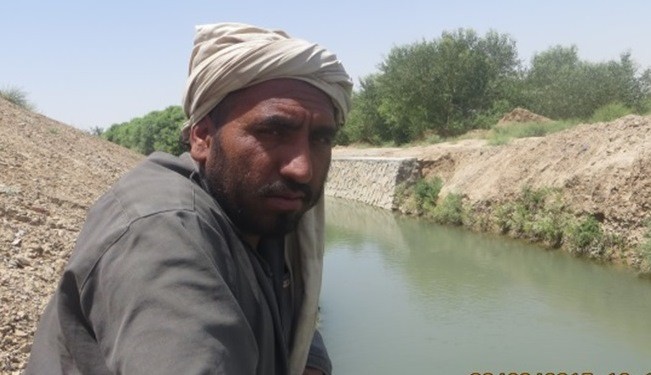
July 2015—For years, Sultan Mohammad cultivated poppy, but the resident of Saped Rawan village in Afghanistan’s southern province of Kandahar did so because his options were limited. There was no water to cultivate other crops.
Poppies require much less water than vegetables or grains. So farmers cultivating licit crops were faced with scarce water, the need to purchase fuel to operate water pumps, and lower selling prices for their crops than for poppies. Farmers selling vegetables and grains could not even cover their production costs.
“Some farmers even had to leave their villages due to the lack of water,” says Mohammad.
Then, in March of this year, USAID’s Kandahar Food Zone program rebuilt the Saped Rawan irrigation canal, benefiting 326 households and nearly 4,000 people.
The canal has given Mohammad and the other villagers reason to hope and dream of a better life. Mohammad now cultivates licit vegetables and grains and irrigates them with water from the canal. He is still waiting to collect his harvest so he can invest in his livestock business as well.
“Every farmer in Saped Rawan village will benefit,” Mohammad says, noting that poppy cultivation has declined to nothing in his village and in the district as a whole ever since the canal was restored.
“Previously, the farmers, who were cultivating poppy, were arrested by the government and punished for years in jail. But now, there is no fear as we are cultivating licit crops,” adds Mohammad.
Kandahar Food Zone intervention programs are designed to support alternatives to poppy cultivation. The goal is to strengthen and diversify legal rural livelihoods in targeted districts by identifying and addressing the root causes and sources of instability that lead to opium poppy cultivation. The two-year, $18.7 million program began in July 2013.
LINKS
Follow @USAIDAfghan, on Facebook, on Flickr, on YouTube







Comment
Make a general inquiry or suggest an improvement.